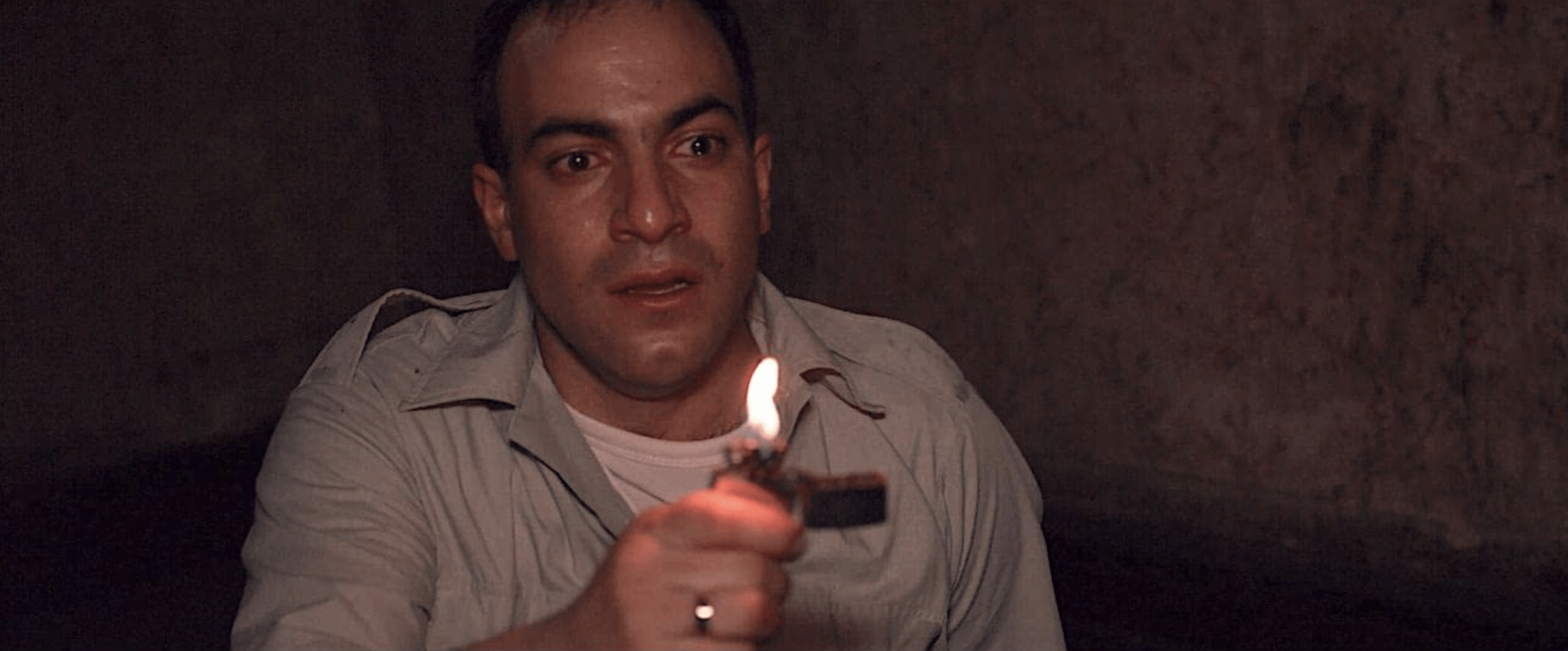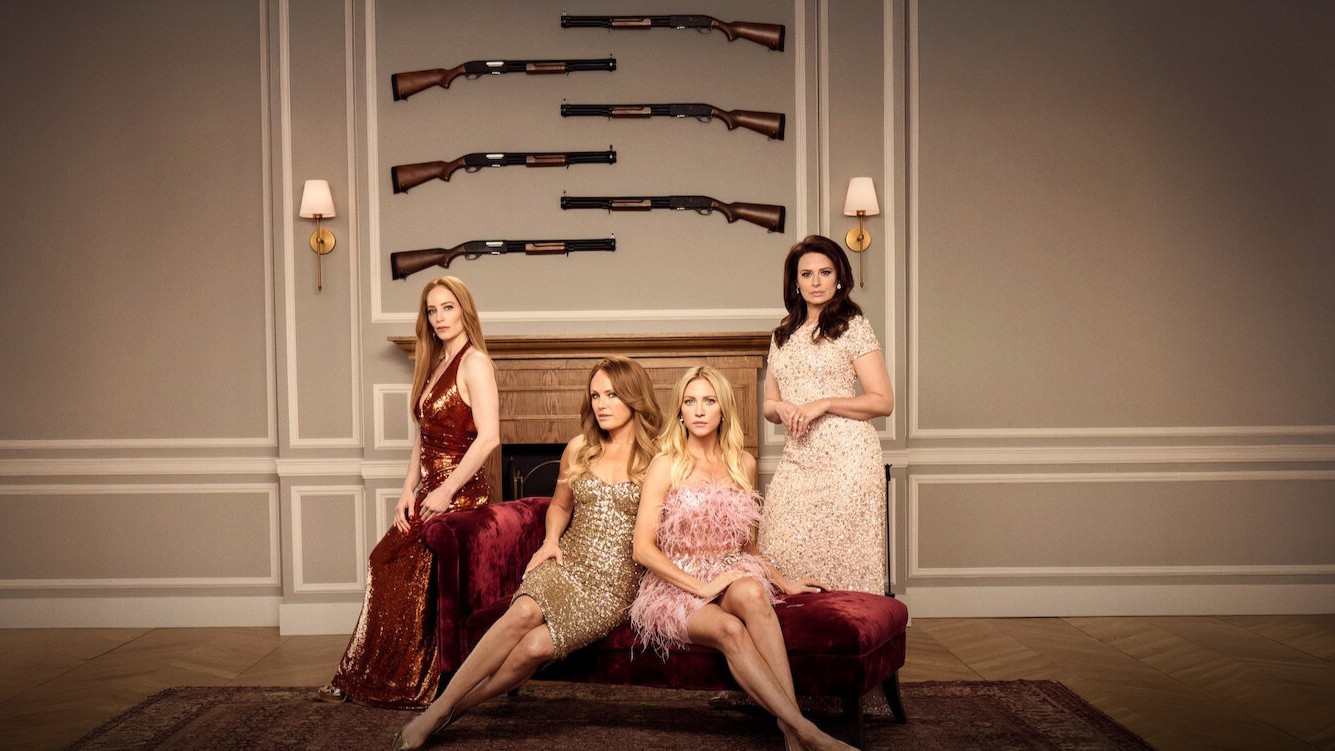What to Watch Verdict
'La Casa' is more effective than revolutionary but finds intimacy in horror storytelling by bringing us, through focal proxy, face to face with our (the character's) nastiest demons.
Pros
- +
🔦 Invasive, in-your-space horror.
- +
🔦 Gabriel Cañas loses himself in performance.
- +
🔦 Some striking slender-like conjurings.
Cons
- -
🔦 Feels drawn out even under eighty minutes.
- -
🔦 Slow-mo obsessed.
- -
🔦 "Interesting" cinematic rules.
In both enticing and abrasive ways, La Casa is an intimately upsetting paranormal experience. Jorge Olguín stresses said "intimacy" by summoning the horrific reports that have infamously dubbed Chile's "Casa Dubois" one of the country's top haunted destinations. In doing so, cinematography lends itself to found-footage signatures that embrace the first-person aesthetic; a single camera follows the film's protagonist over-shoulder but doesn't exist in continuity. It's an experiment that recalls Silent House, blended with [REC], which will undoubtedly define a no-fly zone for more structured genre fans. Otherwise, Olguín navigates an insidious intersection of continuous-take cinema, traumatic international reputations, and cryptic devastation that dooms a poor lawman who investigates the wrong steeped-in-damnation estate.
In 1986, officer Arriagada (Gabriel Cañas) arrives at a Quinta Normal address because neighbors report intruders after curfew. The Ayuntamiento 1650 architectural structure should have been abandoned, which raises local alarms. Arriagada approaches the iron gates and confirms nothing suspicious at first - until a woman's figure appears. Then distressed cries for help break the midnight silence, both female and infantile. Arriagada dashes into the building, and is greeted by a devilish red light that displays dilapidation abound. The screams only intensify, though, so Arriagada presses deeper into the cursed landmark, tempting fate in the name of fulfilled duties.
At seventy-five minutes, there's a shortage of angles to approach La Casa from a critical perspective. Arriagada responds to a familiar invitation towards danger; ghoulish threats present themselves that mirror la casa's tragic 1900s backstory (dead wife, malformed child) and terrorization befalls another condemned playground where demons have long congregated. Olguín chooses to chase Arriagada like he's shuffling two-steps behind, placing us beside Arriagada. Then again, narratively, we don't exist. Arriagada is alone, fending off monstrous conjurings who lurch from doorways with dagger-like fingers, and yet camera perspectives suggest the opposite. It's an immersive, complicated, questionable approach that benefits a meager budget but tonally confuses audience senses.
There are aspects of La Casa that might, and do, frustrate. Even under an hour-and-a-half, Olguín relies on slow-motion sequences where Arriagada collects his wits, or tends to wounds, or saunters towards inevitable dread as to prolong filler. A movie like Host understands its time restraints and doesn't succumb to pressure, as creator Rob Savage weaponizes a ticking clock. La Casa languishes in Olguín's ideology, weighty conveyances of evil, and synth-driven compositions that tickle ominous rhythms as the camera drips like molasses towards Arriagada's next altercation. You'd assume any screenplay this concise might rapid-fire through milestones, and yet, Olguín doesn't appear to be in any rush.
Alternatively, La Casa understands experiential paranoia. Actor Gabriel Cañas stammers and sweats his way down pitch-black hallways where bound female victims crawl from shadows, or the film's returning lurker flashes its Marilyn Manson physique and facial Death Note deformity for another frightening appearance. Cañas is appropriately disheveled, devastated, and driven mad given how Javier Botet himself would appreciate the creature-design thrust into frame whenever Olguín's big-bad rattles viewers' nerves. It's this yin and yang at play, where found-footage-adjacent peril both questions execution (shadows break the fourth wall) and accentuates nightmares (Lumbering Meany's initial emergence).
Under the circumstances, La Casa spotlights the best and worst of found footage cinema without fully embracing the subgenre. As a method of bringing us face-to-face with resurrected evils, tethered to real-world Latin American folklore, Jorge Olguín utilizes background leers and suicidal pasts to parallel "modern" (in context) themes of guilt or grief. Elsewhere, lackluster animated effects distort feminine apparitions in dresses to project something more otherworldly and hopefully malevolent. Olguín strives to reconstruct an atmosphere of feeling locked inside your boogeyman's dream house. While effective, La Casa can't escape minimal comparisons to less memorable independent imprisonments where characters plagued by regret square against the devil's least merciful psychologists. Still, without much required investment, it's worth most horror fans' curious Chilean ghost tour.
La Casa will be available on VOD January 19th, 2021.
The latest updates, reviews and unmissable series to watch and more!
- The best Amazon Prime movies
- Amazon is right: You don't own your digital media
- The best shows on Amazon Prime
- New movies on Amazon Prime
Matt Donato is a Rotten Tomatoes approved film critic who stays up too late typing words for What To Watch, IGN, Paste, Bloody Disgusting, Fangoria and countless other publications. He is a member of Critics Choice and co-hosts a weekly livestream with Perri Nemiroff called the Merri Hour. You probably shouldn't feed him after midnight, just to be safe.


